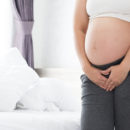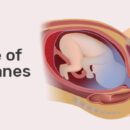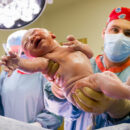
The empowerment of pregnancy: just look to tennis icon Serena Williams
Could you enter an international sports event within months of giving birth to your first child? No? Well, this is exactly what Serena Williams intends to do following the birth of her, and fiancé Alexis Ohanian’s, first child.
Despite some pundits questioning whether she will retire after the baby is born, Williams has indicated in American Vogue that she has absolutely no plans to put down her racket in the near future. In fact, she intends to defend her Australian Open title next January.
“I’m definitely coming back. Walking out there and hearing the crowd, it may seem like nothing. But there’s no better feeling in the world. If anything, this pregnancy has given me new power.”
It goes without saying, of course, that Williams is a professional athlete with years of training behind her elite athlete’s physiology, and while her return to tennis is definitely inspirational, most pregnant women, and new mothers, should perhaps set their sights on slightly more achievable fitness goals.
Having said this, it’s well documented that exercise in pregnancy is really beneficial and can help improve the chances of an uncomplicated pregnancy and labour. And, while science has already proven that pregnancy and childbirth empowers the human body, it’s not just athletes who benefit.
According to Dr. James Clapp III, an authority on prenatal medicine and author of Exercising Through Your Pregnancy, “women who continue weight-bearing exercise during pregnancy maintain their long-term fitness and have a low cardiovascular risk profile in the perimenopausal period”.
While Serena Williams is a current sporting icon who is proving athlete mums can stay fit and enjoy their pregnancy, there have been plenty of others who’ve achieved extraordinary sporting feats after giving birth.
Fanny Blankers-Koen already had two children at the time of the 1948 London Olympics. She competed in the 80m hurdles, the 100m and 200m sprints and the 4 x 100m relay. She won four gold medals – a remarkable achievement on its own, and made even more awe inspiring by the fact that she was in the early stages of her third pregnancy!
Similarly, athlete Liz McColgan, who had given birth just eight months previously, claimed gold in the 10,000 metres at the World Athletic Championships in 1991.
And back in tennis, Kim Clijsters won the 2009 US Open, 16 months after giving birth to her daughter. She even beat Serena in straight sets on her way to the final!
So, we know that pregnancy and childbirth creates huge physiological changes in women, but research conducted by Michelle Mottola, a physiologist, provides an explanation as to why new mothers can be so successful.
In the Guardian, Mottola explains that the “postpartum period [after a woman gives birth] can potentially last up to a year” and that the new mum “may find performance a bit easier during this period because of the changes to her heart and lungs.” During pregnancy, women develop a larger rib cage which assists breathing, and a heart which is more efficient at getting oxygen to the muscles.
However, Mottola does add that the extent of the benefits experienced in the postnatal period will depend on many different factors, such as how much weight the mother gained in pregnancy, and if there were any complications during her pregnancy or childbirth.
Dr David James of Gloucester University also suggests that a change in training schedules can also have a positive effect on pregnant and post partum women. He explains that overtraining detrimentally affects many athletes – pushing the body too hard is a common theme among serious athletes and one which is also a harmful factor. James suggests that pregnant and postpartum athletes may go easier on themselves and this may be another reason why they go on to perform well.
So, while amazing things are happening to you during pregnancy to make you a stronger, performance-enhanced woman, it’s important to stress that we do not recommend testing your physical limits too much before, or within months of giving birth, and that it is wise to seek medical advice before trying any new form of exercise.
You may never become a tennis champion or an Olympic athlete, but even as you go about your everyday life, it is interesting to think about that hidden power your pregnancy is giving you.










